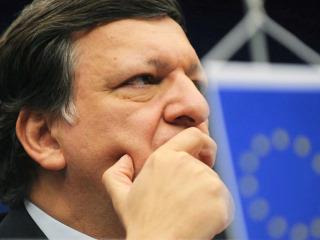Like many Europeans, Commission President Barroso reacted to revelations that US authorities had tapped servers of internet companies for personal data and voiced alarm at the reports that a secret US program, called PRISM, has invaded the privacy of Europeans. That program, revealed by a former US National Security Agency (NSA) computer technician, Edward J. Snowdon, ‘certainly raises serious concern in Europe’, Barroso said. And EU’s own Data Protection Supervisor, Peter Hustinx, said he was deeply concerned and asked for ‘profound clarification, explanation and justification’.
But what do we read on the EurActiv website? ‘European institutions are tracking users of their websites, in breach of the EU’s own data protection rules’! The fact has been confirmed by Mr. Hustinx. Under EU rules for web cookies –data items that can track users’ internet browsing histories- websites should seek consent from users to store nonessential data. For instance the European Commission’s homepage sets cookies to store information on surveys, which are not essential to the operation of its website and technically the Commission should warn that it keeps the data. Users browsing the Commission’s EURES homepage are tracked by Google Analytics without warning, in clear breach of the current data protection rules. EurActiv claims to have evidence of similar breaches on the European Parliament’s website.
EU Data Protection Supervisor Hustinx made the problematic situation even more clear by telling EurActiv that he discovered that, when organising an on-line opinion survey, the EU institutions methodology ‘would not have been appropriate’. Instead he used ‘another operator which respected the existing cookie rules’.
So far Mr. Barroso has not reacted to this breach of EU rules. Double standards, maybe?
THE WEEK THAT WAS... (June 17, 2013)
EBR Chief-editor’s Monday Morning Column. This week N. Peter Kramer writes about "Double standards Mr. Barroso?"

EU Data Protection Supervisor Hustinx made the problematic situation even more clear by telling EurActiv that he discovered that, when organising an on-line opinion survey, the EU institutions methodology ‘would not have been appropriate’. Instead he used ‘another operator which respected the existing cookie rules’.



 By: N. Peter Kramer
By: N. Peter Kramer

